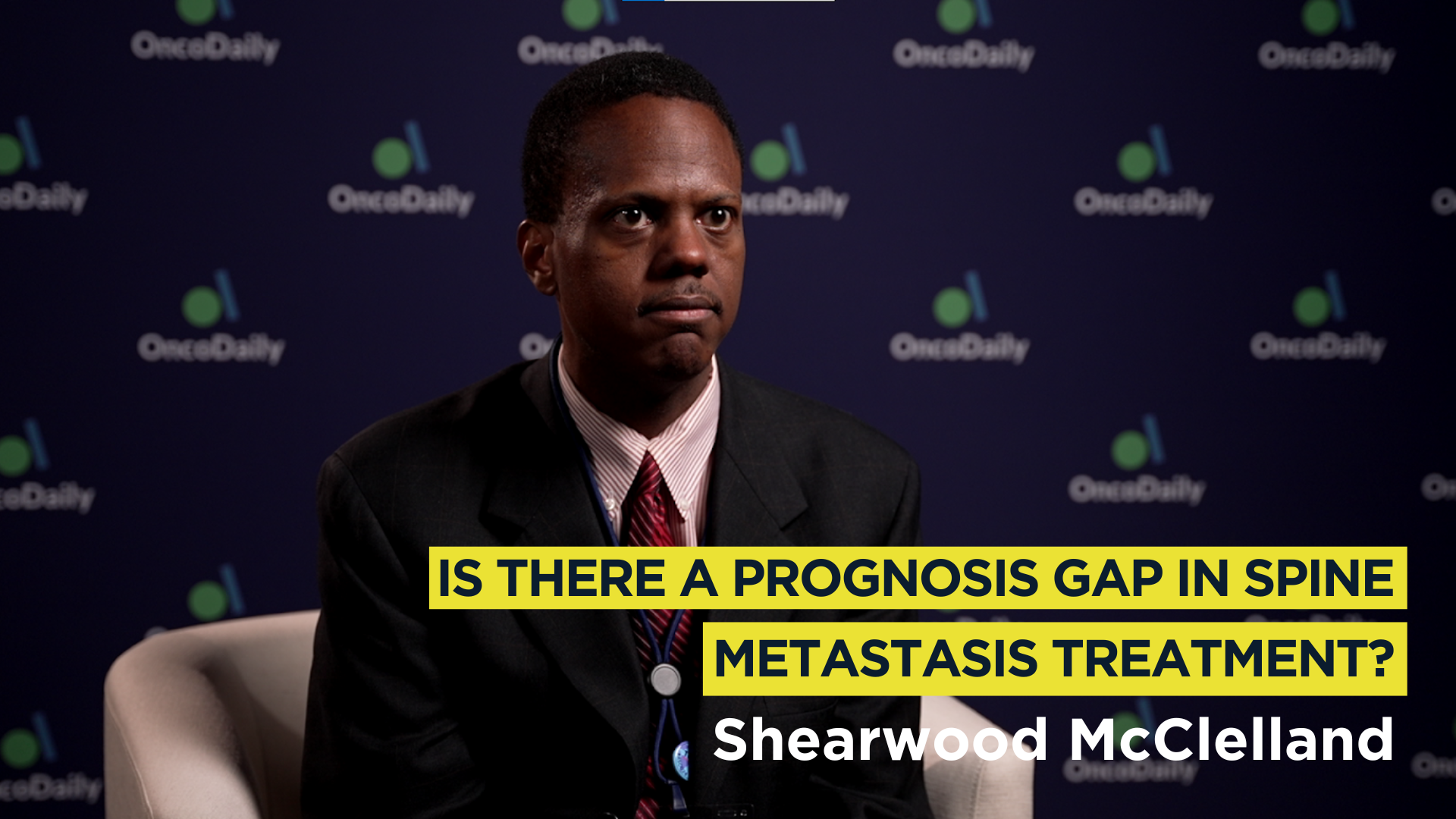The American Society of Clinical Oncology (ASCO) Annual Meeting is one of the largest and most prestigious conferences in the field of oncology. This year, the meeting took place from May 31 to June 4 in Chicago, Illinois. The event gathers oncologists, researchers, and healthcare professionals from around the world to discuss the latest advancements in cancer research, treatment, and patient care. Keynote sessions, research presentations, and panel discussions are typically part of the agenda, providing attendees with valuable insights into emerging trends and innovations in oncology.
This year, OncoDaily was at ASCO 2024 for the first time covering the meeting on-site. We had the pleasure of interviewing researchers who summarized the highlights of their work.
In this video Shearwood McClelland III, Director of Spine Oncology at University Hospitals Case Western Reserve University, shared poster on ‘Accuracy of medical oncology prognosis for patients with metastatic cancer evaluated for enrollment onto an ongoing randomized clinical trial.’
Hello, my name is Dr. Shearwood McClelland III, MD. I am Director of Spinal Oncology and Assistant Professor of Radiation Oncology and Neurosurgery at University Hospitals, Seidman Cancer Center, Case Western Reserve University in Cleveland, Ohio. And I have the privilege of discussing one of the abstracts that my lab has submitted that has been accepted at ASCO.
This abstract looks at the prognosis accuracy of medical oncology and how it relates to patients being enrolled on an ongoing trial. The ongoing trial in this instance is our spine patient optimal radiosurgery treatment of symptomatic neoplasms sportsman trial. It’s a phase two randomized control trial that officially opened in January, 2023.
And during the first year of the trial, we examined what proportion of patients who were cleared from a medical oncology prognosis standpoint actually lived as long as medical oncology prognosticated. One of the inclusion criteria of the trial is that patients had to have a prognosis of at least three months. All patients on this trial by definition had symptomatic spine metastatic disease.
So they were all stage four. And 27 patients total were considered for trial inclusion and assigned a prognosis by medical oncology. Of those, the medical oncology prognosis rate overall was about 56% accurate.
So 44% of patients that medical oncology said prognosticated would live at least three months did not. For inpatients, this rate was about 68%. For outpatients, this rate was about 25%.
And that was statistically significant. So what we found was that medical oncology prognosis was optimistic by a little more than 40%. And this seems high, but it actually is consistent with literature from Japan, the US and other countries that shows this prognosis rate, estimation rate to be high.
This is important for clinical trials because when trials require prognosis for oncology, medical oncologists are typically giving those. And so if you’re going to design a trial that is based on this, and you assume that the medical oncology prognosis rate is 90 to 100%, you’re going to overshoot by quite a bit and consequently under-enroll patients. And this may lead to studies that end up not accruing or having too little power to determine what you’re actually shooting for.
So basically what we found was that medical oncology prognosis is optimistic, especially for patients who are inpatient. And so this must be kept in mind when considering patients. For this reason, our lab has started working on a heuristic scale to more objectively quantify prognosis inpatients.
And this is underway, and we expect to present this in the near future.
More videos and content from ASCO 2024 on OncoDaily.
